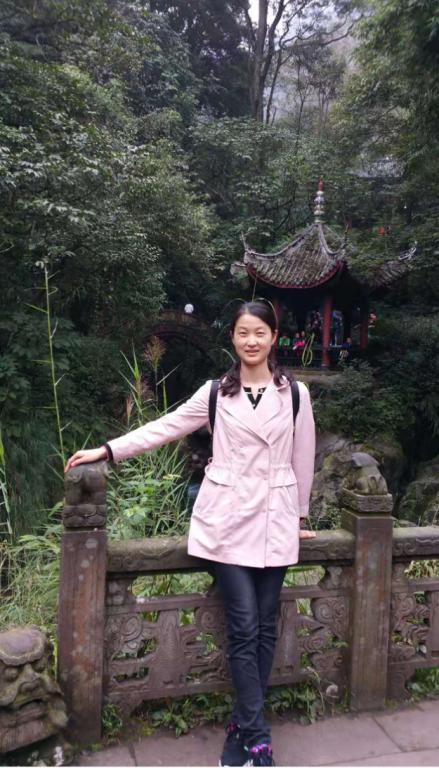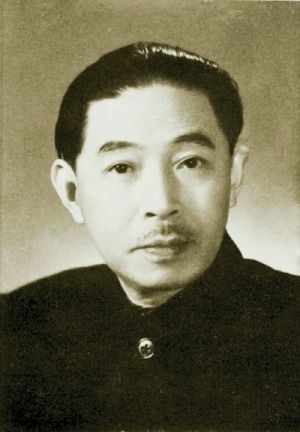教师党员张含华为您推荐
《沈雁冰:矢志不渝坚守信仰》

推荐人:教师党员张含华
推荐理由:20世纪前半叶,中国经历了半世浮沉。在社会动荡不安、国家陷于危难之际,众多文化工作者选择中国共产党为精神依归,在其专业领域、用其特有的方式拯救国难,为党的事业做出卓越贡献。沈雁冰(笔名茅盾)就是其中一位杰出代表。沈雁冰在中国共产党早年困难时期加入,同党一起度过困难,在与党组织失去联系后自觉担当革命“鼓手”和“号角”,在党胜利后继续为党奉献,弥留之际渴望追认回归,他对理想信念的终身追求,展示了什么叫做坚定与执着。
沈雁冰:矢志不渝坚守信仰
Shen Yanbing: Unswervingly stick to faith
五四运动后,沈雁冰(笔名茅盾)开始接触马克思主义,结识陈独秀,并为《新青年》杂志撰稿。1920年,他参加了上海共产党早期组织,做了大量工作。
After the May 4th Movement, Shen Yanbing (pseudonym Mao Dun) began to get in touch with Marxism. He made his acquaintance with Chen Duxiu and began to write articles for La Jeunesse. In 1920, he joined the early organization of the Communist Party in Shanghai and accomplished a lot of work.

沈雁冰
1921年中国共产党正式成立,包括沈雁冰在内的各地早期党组织成员顺然转为正式党员。起初,党的各项工作处于秘密状态,沈雁冰以其工作环境为掩护担任直属中央的联络员,开展党内通讯联络工作,并在党创办的学校承担教学任务,领导、参与、报道上海罢工运动。
In 1921, the Communist Party of China was formally established, members of early party organizations including Shen Yanbing became regular party members. At first, the party's work was in a secret state. Therefore, Shen Yanbing worked as a liaison officer directly under the Central Committee of the Communist Party of China with the cover of his working environment – to carry out the communication and liaison work for the party, to undertake the teaching task in the school founded by the party, and to lead, participate in and report on the strike movement in Shanghai.
大革命期间,根据形势的推进和党的工作的需要,沈雁冰接受党组织派遣,辗转各地。苦闷彷徨之时,沈雁冰决心拿起手中的笔为党的事业继续奋斗,从而踏上了文学创作征程。隐居上海期间,他创作了以大革命时期为背景的第一部小说《幻灭》;1928年流亡日本后,创作了寄托革命前途信念的长篇小说《虹》;1930年返回上海后,完成了反映30年代国内社会现实的长篇巨著《子夜》;抗战期间,继续创作了大量暴露国民党反动本质、歌颂人民抗日斗争的革命文学作品。
During the Great Revolution, Shen Yanbing was dispatched by the party organization and traveled around the country to meet the needs of the situation and the party's work. Depressed and hesitated, Shen Yanbing was determined to struggle for the cause of the party through writing, from which started his journey of literary creation. During his seclusion in Shanghai, he wrote his first novel Huanmie in the setting of the Great Revolution. After exiled to Japan in 1928, he wrote the novel Hong, which reposes his belief in the future of the revolution. Subsequently after he returned to Shanghai in 1930, Ziye was completed, which reflects the social reality of the 1930s. In the course of the Anti-Japanese War, he continued to create a large number of revolutionary literary works which exposed the reactionary nature of the Kuomintang and eulogize the people's Anti-Japanese struggle.
1981年,沈雁冰以孱弱之躯在病床上提出给中央写信,表达要求恢复党籍的心愿。这封信由他口授、其子代笔、他本人亲笔签名。3月27日,这位文坛巨星陨落。3月31日,党中央作出“恢复沈雁冰中国共产党党籍,党龄从1921年算起”的决定。
In 1981, on his sick bed with a weak body, Shen Yanbing dictated to his son a letter for the Central Committee to express his wish to restore his party membership. He signed on the letter personally. On March 27, the literary superstar passed away. On March 31, the Central Committee made a decision to "restore Shen Yanbing’s membership of the Communist Party of China with his party standing being counted from 1921".
沈雁冰对理想信念的终生追求,展示了什么叫做坚定与执着。
It is Shen Yanbing’s lifelong pursuit of ideals and beliefs that demonstrated firmness and persistence.

 学校首页
学校首页